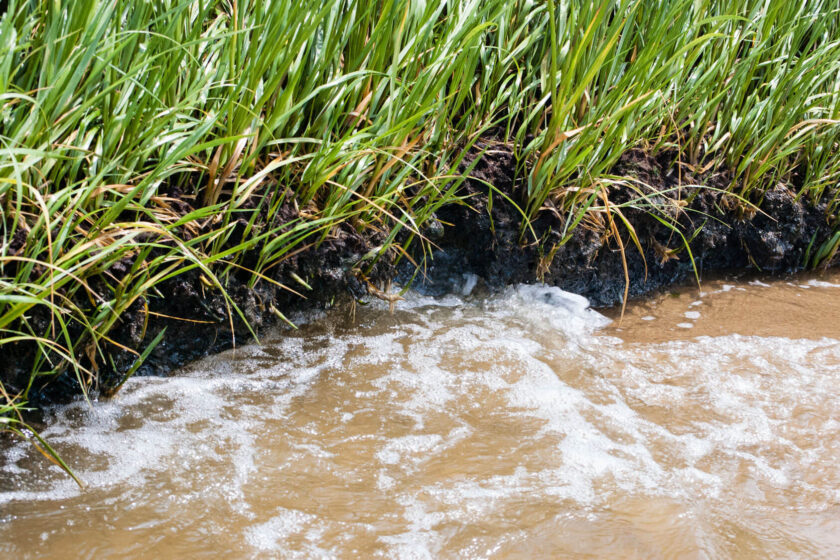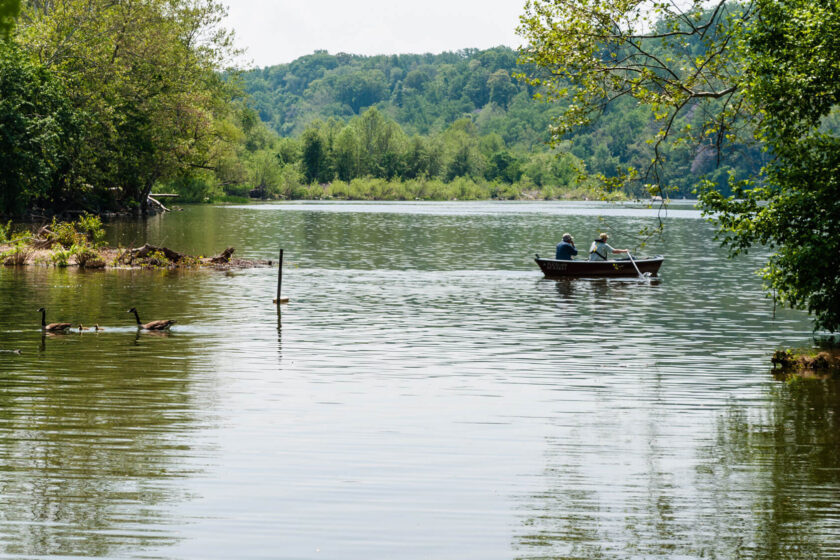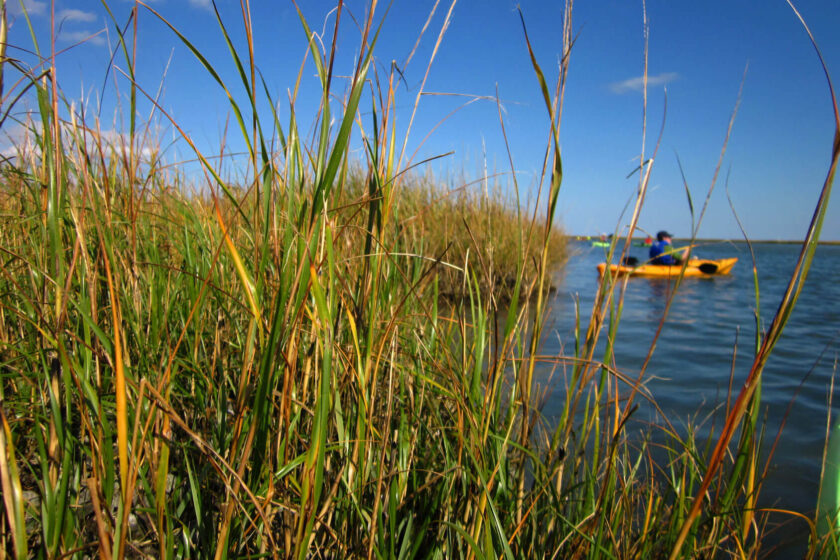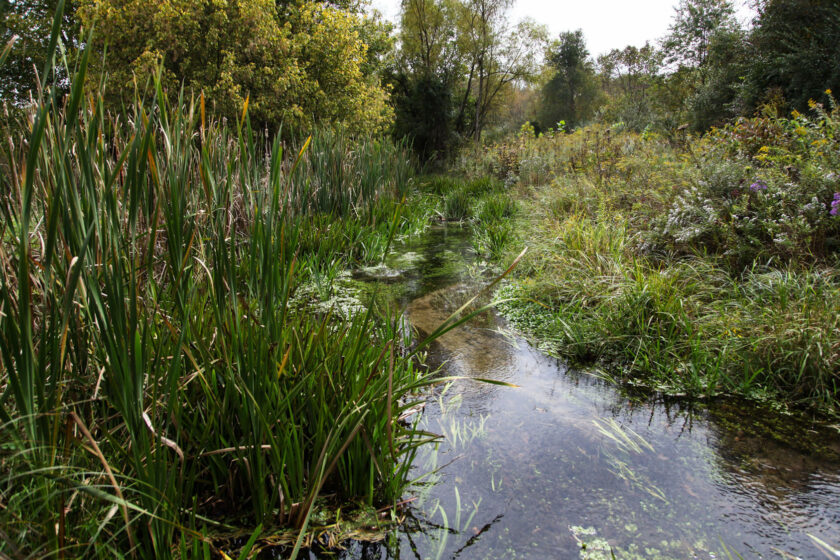Economy
The environmental services that wetlands provide hold economic value. The value of some of these services can be realized by an individual landowner while other services have value to society as a whole.
Landowner Services
Wetlands provide value to the landowner in the following ways:
- Wetlands help reduce the impact of agricultural activities by filtering nutrients & sediment from runoff
- Wetlands help maintain the water table
- Water for irrigation can be stored in wetlands
- Wetlands provide an economically attractive option for low yield & regularly wet areas
Broader Services to Society
While a single wetland may not perform every service, we have illustrated each service's estimated value according to the World Wildlife Fund below.
Ecosystem Services
Erosion Control

Wetlands capture, hold and slowly release runoff, which prevents the erosion of surrounding land. (Photo by Chesapeake Bay Program)
Annual value: $187 per acreFish and Shellfish Habitat

Wetlands serve as nurseries and spawning grounds for commercially valuable fish and shellfish. (Photo by Will Parson/Chesapeake Bay Program)
Annual value: $81 per acreFishing

Wetlands flooded with water year-round provide habitat to flounder, spot, striped bass and other fish favored by anglers. (Photo by Chesapeake Bay Program)
Annual value: $151 per acreHunting

Wetlands provide habitat to white-tailed deer and waterfowl. (Photo by Will Parson/Chesapeake Bay Program)
Annual Value: $50 per acreRecreation

Wetlands provide a unique opportunity to experience nature up close. They are wonderful places to canoe, kayak, watch birds or photograph the natural world. (Photo by Chesapeake Bay Program)
Annual value: $200 per acreWater Quality Improvement

Wetlands trap nutrient and sediment pollution and send cleaner water downstream. (Photo by Chesapeake Bay Program)
Annual value: $116 per acre